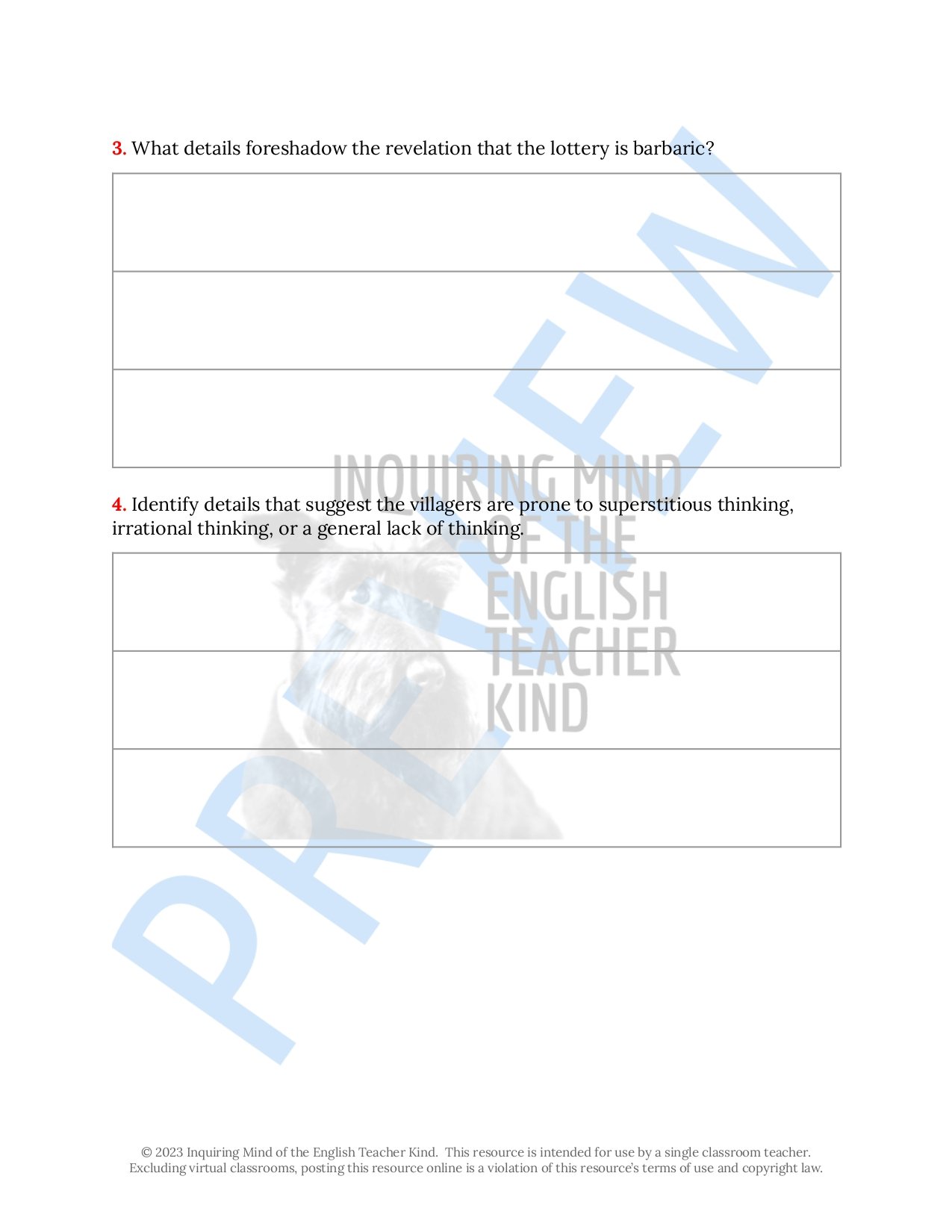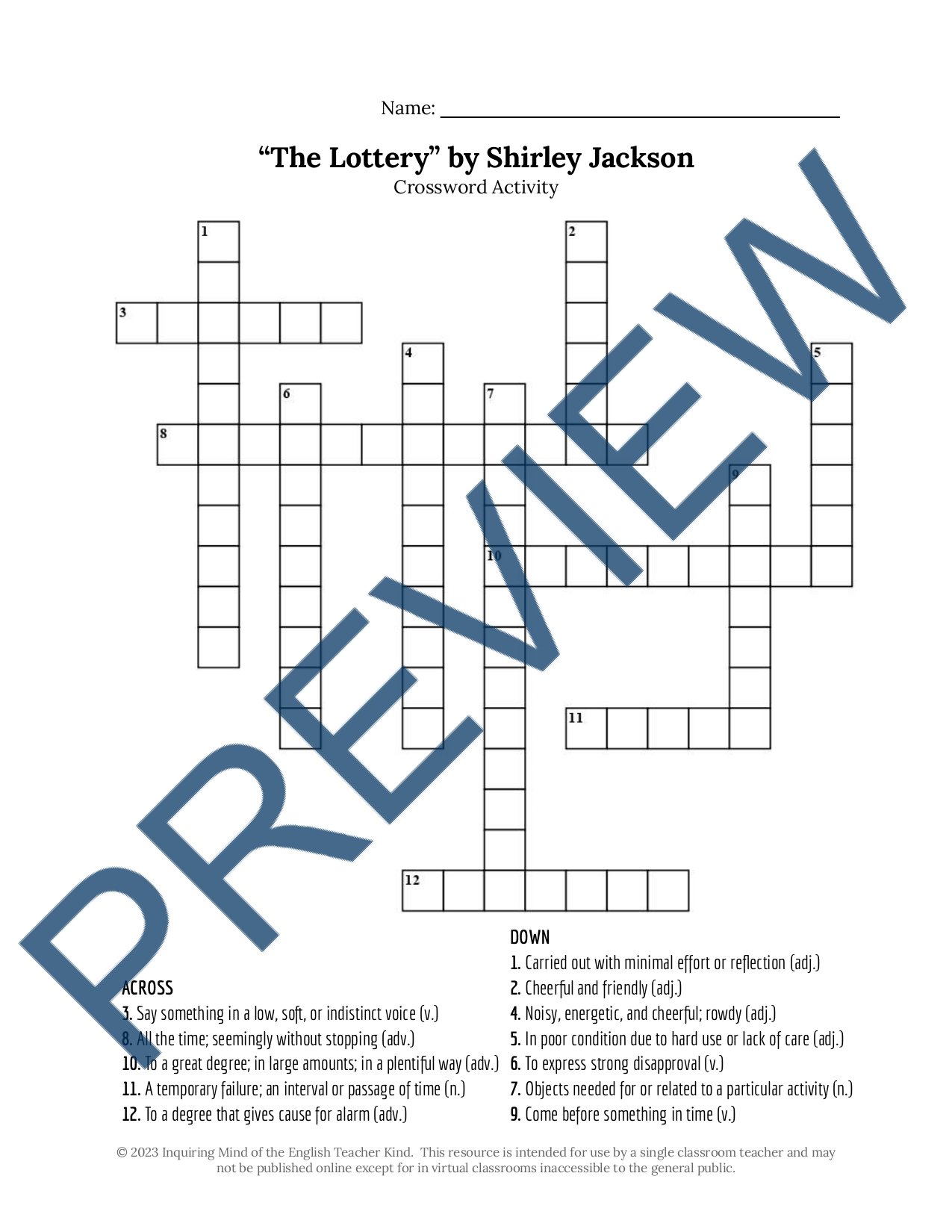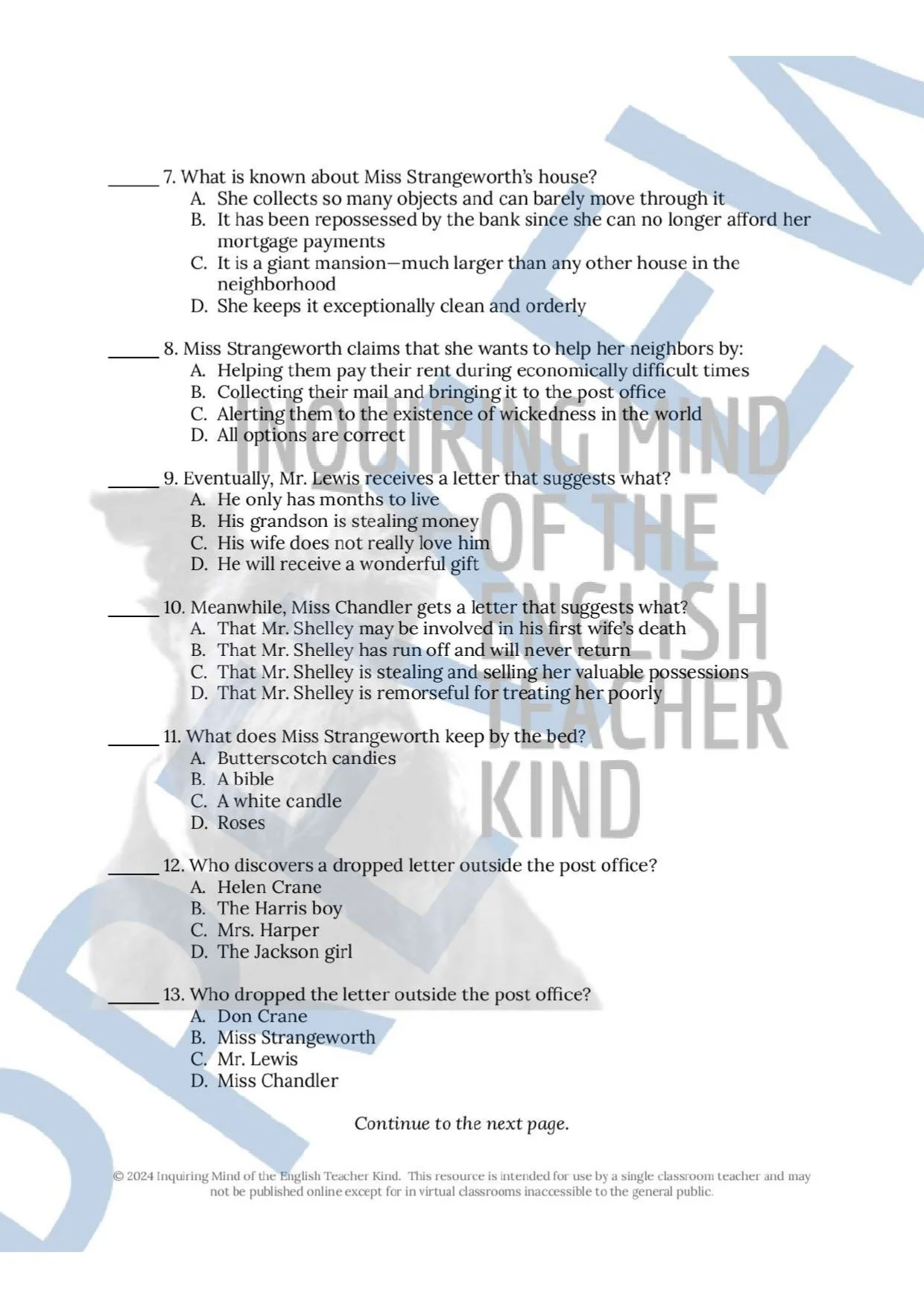 Image 1 of 10
Image 1 of 10

 Image 2 of 10
Image 2 of 10

 Image 3 of 10
Image 3 of 10

 Image 4 of 10
Image 4 of 10

 Image 5 of 10
Image 5 of 10

 Image 6 of 10
Image 6 of 10

 Image 7 of 10
Image 7 of 10

 Image 8 of 10
Image 8 of 10

 Image 9 of 10
Image 9 of 10

 Image 10 of 10
Image 10 of 10











"Charles" by Shirley Jackson Quiz, Close Reading Worksheet, and Vocabulary Games
Evaluate general reading comprehension, facilitate vocabulary development, and sharpen critical thinking skills with this bundle of materials for teaching Shirley Jackson's short story titled "Charles." A plot-based quiz, close reading analysis worksheet, vocabulary application activity, crossword puzzle, word search game, and answer keys are provided. Materials are delivered in Word Document and PDF formats. (Alternatively, a Google Drive bundle option is available.) By engaging with these activities, students will:
Identify what the text states both explicitly and implicitly
Define words and phrases as they are used in the text
Consult reference materials in order to learn and verify word meanings
Choose the most proper application of words as they are used in sentences
Determine the function of a given paragraph
Discern the narrative's dominant conflict
Explore how characters think, behave, interact, and develop
Apply knowledge of literary devices including foreshadowing, slang, situational irony, neologism, invective, and sibilance
Reflect on how point of view shapes the reader's understanding of events
Consider theme in context
Support claims and inferences with sound reasoning and relevant evidence
Write about fiction with clarity, accuracy, and precision
Resources are available for teaching short stories of various genres:
Evaluate general reading comprehension, facilitate vocabulary development, and sharpen critical thinking skills with this bundle of materials for teaching Shirley Jackson's short story titled "Charles." A plot-based quiz, close reading analysis worksheet, vocabulary application activity, crossword puzzle, word search game, and answer keys are provided. Materials are delivered in Word Document and PDF formats. (Alternatively, a Google Drive bundle option is available.) By engaging with these activities, students will:
Identify what the text states both explicitly and implicitly
Define words and phrases as they are used in the text
Consult reference materials in order to learn and verify word meanings
Choose the most proper application of words as they are used in sentences
Determine the function of a given paragraph
Discern the narrative's dominant conflict
Explore how characters think, behave, interact, and develop
Apply knowledge of literary devices including foreshadowing, slang, situational irony, neologism, invective, and sibilance
Reflect on how point of view shapes the reader's understanding of events
Consider theme in context
Support claims and inferences with sound reasoning and relevant evidence
Write about fiction with clarity, accuracy, and precision
Resources are available for teaching short stories of various genres:
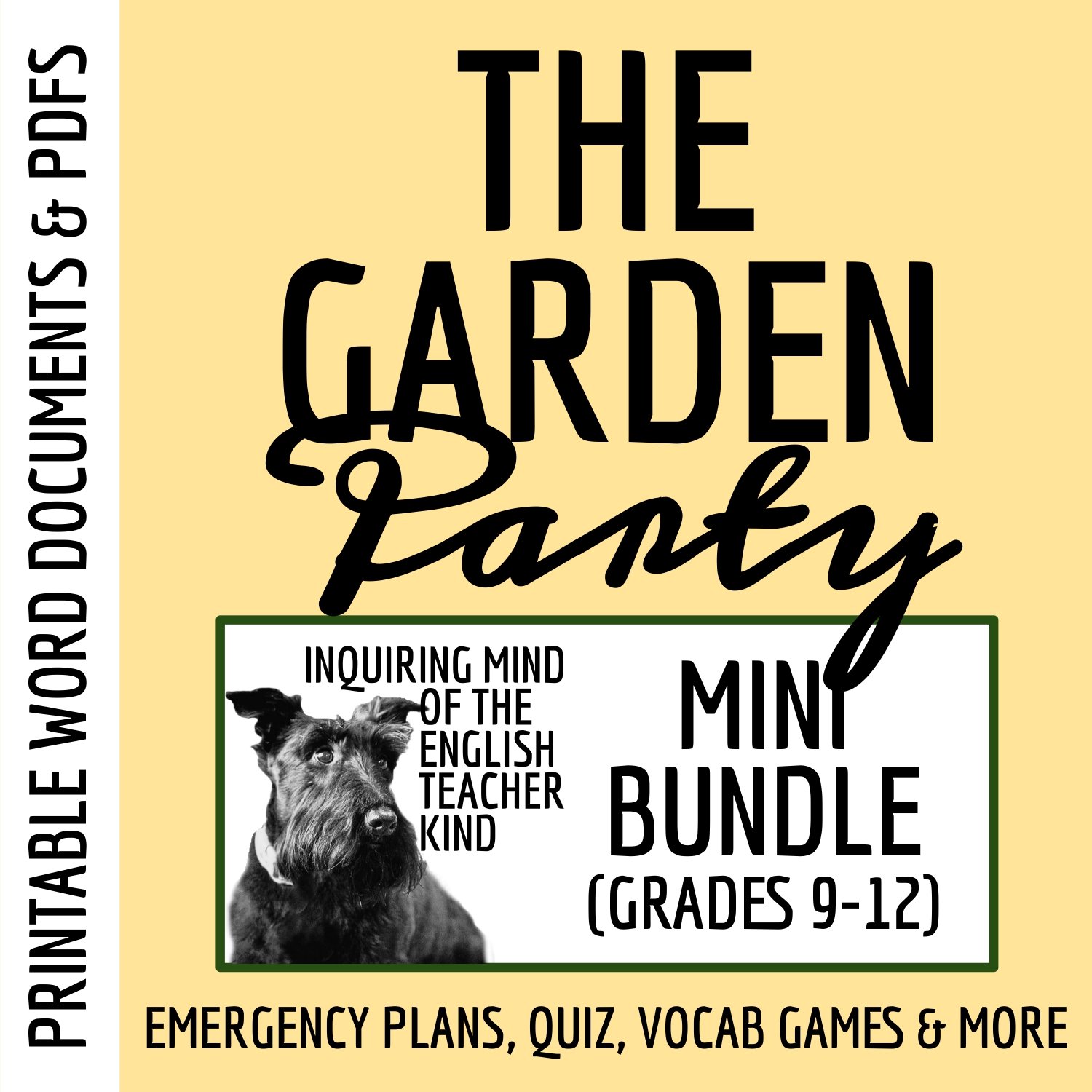
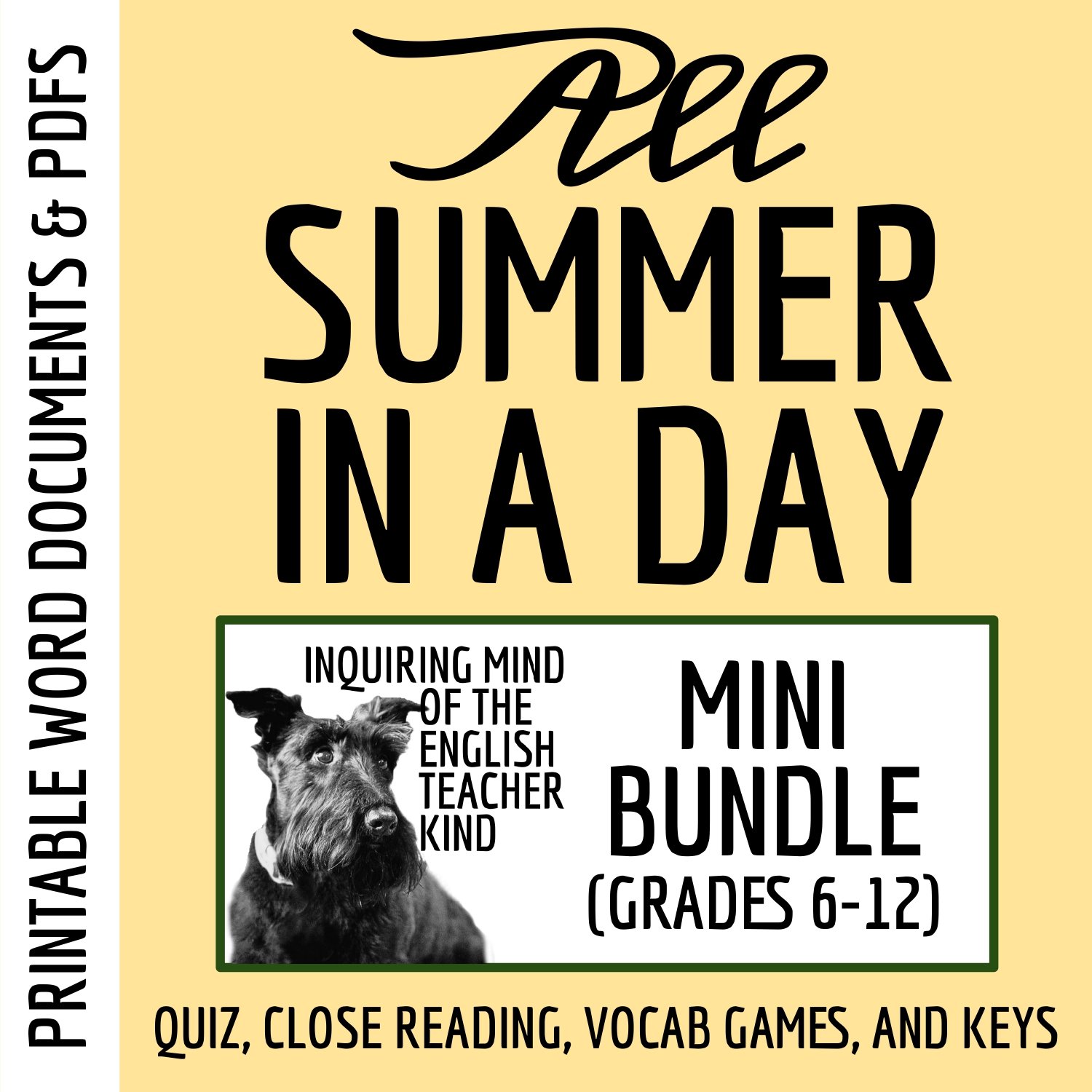
Preview this resource:
Evaluate general reading comprehension, facilitate vocabulary development, and sharpen critical thinking skills with this bundle of materials for teaching Shirley Jackson's short story titled "Charles." A plot-based quiz, close reading analysis worksheet, vocabulary application activity, crossword puzzle, word search game, and answer keys are provided.






